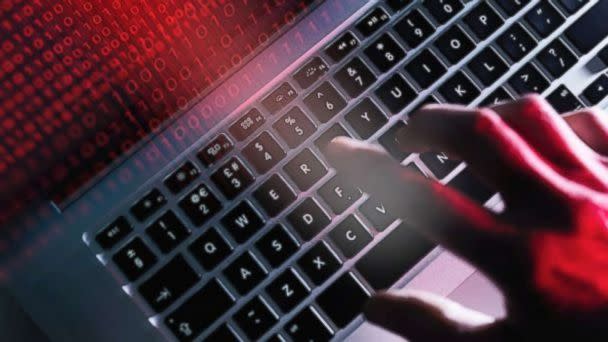World leaders unprepared for rise in cyberwarfare in the '90s, author says
World leaders were not prepared for the rise in cyberwarfare in the '90s and today they still need to stay vigilant, according to an author who has been tracking online threats.
Matt Potter, author of "We Are All Targets," spoke with ABC News Live Thursday about his book and how the U.S. and other Western nations were caught off guard during several cyberattacks in the late '90s.
Potter said that too many leaders overestimate how cyberattacks work and, more importantly, who is behind them.

"The interesting thing is cyberwar itself...a lot of times it wouldn’t do the same thing as a bomb," he told ABC News. "What it will do is it will distract, bleed resources, it will make your targets realize they've been hacked."
MORE: Video Cyber warfare is a 'total war' since Kosovo through Ukraine: Author Matt Potter
Potter noted that cyberattacks have come back to the forefront since the invasion of Ukraine began. There have been many reports of Russian-aligned forces hacking critical Ukrainian systems, including power lines.
Potter said the main effect of a cyberattack is to distribute and plant seeds of doubt within a government or military organization that can cost time and resources.

"Suddenly they don't know what communications out to the field are secure," he said.
Potter was critical of Western leaders during the late '90s for their lack of awareness when it came to cyberattacks and criminals.
MORE: Shields up: How a possible cyberattack could affect Americans and how to prepare
"They were quite directional and could not conceive of the idea that people might not be operating to command," he said.
Potter said that leaders were afraid of a "digital Pearl Harbor" when instead they need to focus on the smaller scale operations.
"We need to be afraid of the distributed, faceless non-spectacular things that pop up around us in virus form," he said.
World leaders unprepared for rise in cyberwarfare in the '90s, author says originally appeared on abcnews.go.com
